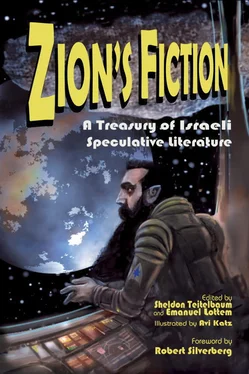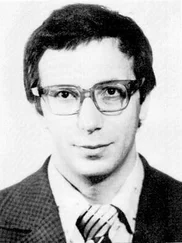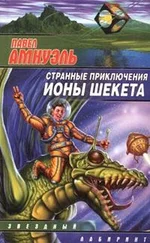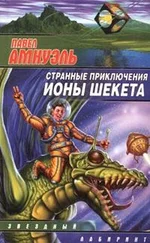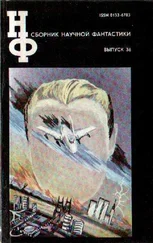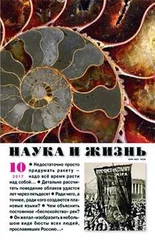Gur Shomronis a writer, poet, and technology entrepreneur and inventor. He co-started his first technology company, Quality Computers, at the age of twenty-two and took it public in Israel. He continued his career as an entrepreneur and investor and spent thirteen years in the United States building high-technology companies. At the same time he started writing science fiction. In his first (as yet unpublished) book, A Message from Nowhere , Shomron envisioned a network similar to the Internet more than thirty years ago. His second book, NETfold , was selected by Kirkus Reviews in 2014 as one of the best in its category (Indie). It describes a virtual world where people have twenty-four times more time and can lead alternate lives. NETfold was published in Israel by the Modan Publishing House.
Currently, Shomron divides his time among writing, charity, and serving as chairman of various Israeli technology companies. He is the chairman of WalkMe, a world-leading company in the Internet guidance and engagement field, and of Coldfront, which develops medical devices for the treatment of brain stroke. Gur Shomron lives in Raanana, Israel. He is married and has four children.
Eyal Telerwas born 1968 in Jerusalem to a literature teacher and an astronomy buff. Teler took to SF/F in high school, advancing from Hebrew translations of genre standards to English, largely, he says, thanks to a seeming inexhaustible supply of Perry Rhodan novels. He attended the Hebrew University in Jerusalem, graduating with a master’s degree in computer science, and has been a software developer ever since, creating, among other products, games, an AI chip, and a 3D 360-degree camera. Teler credits the online Critters writing workshop with his first and only sale so far, “Possibilities,” to The Magazine of Fantasy and Science Fiction in 2003. The story was a response to Bradbury’s story, “Quid Pro Quo,” published in 2000. Teler later sold the story through the online service Fictionwise, earning a majestic $2.20, the proceeds of which he never banked, as check-cashing charges in Israel exceeded the value of the check. Henceforth, writing took the far back seat to family and work responsibilities—Teler is married and has two children—and although he has considered writing a novel centered on the female protagonist of his story, time, he says, has eluded them both.
Lavie Tidharis winner of the World Fantasy Award for Osama (2011) and The Violent Century (2013) and of the Jerwood Fiction Uncovered Prize for A Man Lies Dreaming (2014) and is author of many other works. He writes across genres, combining detective and thriller modes with poetry, science fiction, and historical and autobiographical material. Tidhar’s work has been compared to that of Philip K. Dick by the Guardian and the Financial Times and to that of Kurt Vonnegut by Locus .
Tidhar was born in 1976 on a kibbutz in northern Israel, where he discovered SF/F in a cache of the Israeli SF magazine Fantasia 2000 gathering dust in the collective’s library. Upon moving with his family to South Africa in his teens, Tidhar adopted English as his primary creative language. His first publication, however, a collection of verse translated as Remnants of God , appeared in his native Hebrew in 1998. He launched his career as an English-language SF/F writer in the online magazine Chizene in 2005.
The Encyclopedia of Science Fiction ( www.sfe.com) describes the writer, who now resides in the United Kingdom, as a postmodern pioneer of equipoisal fantastika. “Tidhar’s literary strategy,” it intones, “repeatedly relies on the recycling of stereotypes and clichés drawn from classical pulp SF and detective fiction, traditional mythologies and contemporary popular culture.”
This penchant can be identified in his first English-language collection of linked short stories, Hebrewpunk , published in 2007. It reaches full steam(punk) in his Bookman sequence (2010–12), three linked novels transpiring in an alternate Victorian England under the claws of a reptilian alien race. But it is in his World Fantasy Award–winning novel Osama (2011), which channels noir, alternate history à la Philip K. Dick’s The Man in the High Castle and Timeslip , that Tidhar breaks free into new psychological and genre-shifting territory. “The Smell of Orange Groves” is featured in Central Station (2016), winner of the John W. Campbell Award and a Locus and Arthur C. Clarke Award nominee. It is a mosaic novel set around a spaceport erected several hundred years hence on the ruins of the eponymous Tel Aviv bus station.
Nir Yaniv,a Tel Avivian, is a musician, writer, editor, and occasional director. He describes himself as a hi-tech wizard with a background in computer programming and an instrumental vocalist, a devoted a cappella performer, bassist, composer, and arranger. Yaniv performed at the Red Sea Jazz Festival in 1999 and 2002 and at numerous other festivals. He records his own music at his own studio, The Nir Space Station. Yaniv performed live music with a dance company for ten years and created music for films and TV. Indeed, he starred in a short, award-winning Israeli horror film as the monster. Yaniv has participated in numerous musical groups and bands and says he still hasn’t had enough. His short-story collections include One Hell of a Writer (Odyssey Press, 2006) and The Love Machine & Other Contraptions (Infinity Plus, 2012). Short films include Conspiracy (2011), MicroTime (2013), and LiftOff (animation, 2013). Yaniv draws weird caricatures, sometimes to be found on T-shirts and coffee mugs. He founded Israel’s first online SF/F magazine and served as its chief editor, then moved on to edit the printed SF magazine Halomot beAspamia and to found the website of the Israeli Society for Science Fiction and Fantasy. He writes columns, articles, and reviews for various publications.
Yaniv’s short stories appeared in magazines in Israel and abroad (notably Weird Tales, ChiZine, Apex , and other publications, electronic and printed). He wrote two novels with fellow author Lavie Tidhar: Fictional Murder (Odyssey Press, 2009) and The Tel Aviv Dossier (ChiZine Publications, 2009).
PRAISE FOR ZION’S FICTION
“This splendid new anthology will open a window on contemporary Israeli fantasy and science fiction—a stream of powerful work that we need to know more about.”
—Robert Silverberg, author and editor of SF, multiple winner of Hugo and Nebula Awards, member of Science Fiction and Fantasy Hall of Fame, and a Science Fiction Writers of America SF Grand Master
“ Zion’s Fiction will supply a distinctive bright line to the spectrum of futuristic fiction, which stands in sore need of broadening, in the cause of promoting cross-cultural understanding as well as showcasing exciting new talent.”
—Brian Stableford, author of over 70 novels and renowned SF historian
“ Zion’s Fiction explores the unlimited dreams of a people who have learned to stand on shifting ground. To face a future filled with danger and hope, forging into territory that can only be surveyed with the lamp of imagination on our brows.”
—David Brin, multiple Hugo and Nebula Award recipient and author of
EARTH and
Existence
“When my collection Wandering Stars: An Anthology of Jewish Fantasy and Science Fiction was published in 1974, it became a classic. And now… we have the first ever anthology in the entire universe of Israeli fantasy and science fiction: Zion’s Fiction …. Go forth and read… and may you find Zion’s Fiction unexpected, delightful, and delirious!”
Читать дальше
